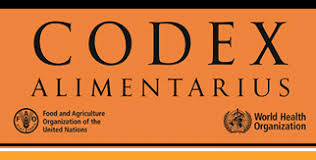Food allergy bears a serious burden for patients and their carers. It not only poses severe health risks linked to potential life-threatening allergic reactions, but also causes social, emotional, and economic limitations. In 2020, EFA continued to advocate for timely and accurate information through allergen labelling, a key tool to protect the well-being of patients.
To build on our 2019 FoodDETECTives project, EFA called for a more comprehensive approach to allergen information, including harmonised use of Precautionary Allergen Labelling (PAL) and the pressing need for mandatory training on allergen management for staff in food production and service industries. To highlight patients concerns on PAL, we worked closely with Members of the European Parliament who sent two EP Written Questions to the European Commission, stating the current situation, and calling for action via the framework of the Farm-to-Fork Strategy and future legislation.
EFA also represented food allergy patients in the Quantitative Risk Assessment Stakeholder Group, hosted by the International Life Sciences Institute Europe (ILSI-Europe), to help develop a guidance on the application of allergen risk assessment in food.
As an accredited stakeholder of the European Food Safety Authority (EFSA), EFA followed the work of the agency closely regarding an evolved stakeholder engagement framework. EFA was also selected as a member in the EFSA Allergenicity Stakeholder Consultation Group working on Genetically Modified Organisms (GMOs), to provide input on EFSA’s scientific work.
Another DG SANTE consultation on food safety, allergies and food waste gave EFA the opportunity to discuss the “food safety culture’’ concept, and the pressing need for mandatory training on allergen management for staff beyond commercial Food Business Operators.

At the international level, EFA followed closely the work of the Codex Alimentarius (CAC) on food hygiene and labelling, providing inputs in several consultations. Notably, EFA participated in the consultation on a Code of Practice on food allergen management for food operators, and in the annual CAC commission meeting, bringing forth the need to harmonise PAL based on quantitative risk assessment.
